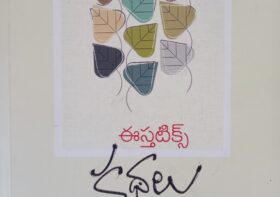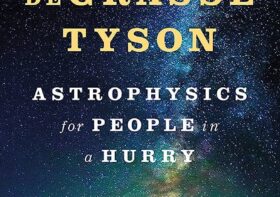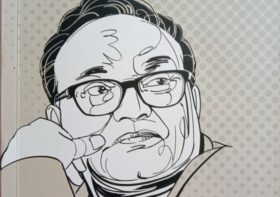Strindberg’s “The Father”

August Strindberg – ఈ రచయితతో తొలిసారిగా “Fiction of Relationship” కోర్సులో పరిచయం కలిగింది. అందులో ఆయన పుస్తకాలేవీ లేవు. కానీ ఆ కోర్సును పరిచయం చేయడానికి, దాని ముఖ్యోద్దేశ్యాన్ని వివరించడానికి మా ప్రొఫెసర్గారు ఎక్కువగా ఈ రచయిత మీదే ఆధారపడ్డారు. సాహిత్యం చదివేటప్పుడు పాఠకునిగా మనం చేసే ప్రయాణాలు, మనం వెళ్ళే దారుల గురించి చెప్తూ, ప్రొఫెసర్ ఇలా చెప్పుకొచ్చారు:
“Trips are being made, openings are being made and entered. And I intentionally, put that in a kind of assertive, quasi-sexualized way – openings are being entered.
Strindberg, the great Swedish – crazy Swedish – playwright wrote Nietzsche saying:
“Your words have entered the uterus of my brain.”
What on earth could he have meant?
To quote Strindberg again, when he is in Austria, bored to tears, among people who think he is a madman (which as I said, they had their reasons.) At the same time a play of his is being put on in Paris and he writes this to a friend.
“This feeling of power, it’s happiness to sit in a cottage by the Danube among six women who think I’m a semi-idiot, and to know that in Paris, the headquarters of intelligence, five hundred people are sitting dead quite in an auditorium and are foolish enough to expose their brains to my powers of suggestion. Some revolt! But many will go away with my spores in their grey matter. They will go home pregnant with the seed of my soul, and they will breed my brood.” ”
***********
Strindberg నాటకాల్లో నేను మొట్టమొదటిగా చదివింది “The Father”. ఈ నాటకం గురించి మాట్లాడుకునేముందు, నేను చదివిన మరో పుస్తకం ప్రస్తావన ఇక్కడ అవసరం.
Jared Diamond అనే అమెరికన్ సైంటిస్ట్ మరియు రచయిత రాసిన పుస్తకం “Why is Sex Fun? – The Evolution of Human Sexuality.”. ఇందులో సెక్స్ పరంగా స్త్రీ, పురుషులు ఎలా డిజైన్ చేయబడ్డారు? అది వేరే జీవుల కన్నా ఎంత వేరుగా ఉంటుంది? ఆ పై మానవ మనుగుడ నశించకుండా స్త్రీపురుషులు ఎలాంటి compromisesని చేసుకున్నారు? మగవాడు కుటుంబ బాధ్యతను ఎలా నెత్తినెత్తుకున్నాడు? అలా ఎత్తుకోవడానికి ఆడవాళ్ళ trump card ఏంటి? ఎలా ఎత్తుకున్నాక ఆడవాళ్ళ నష్టపోయినది ఉందా? ఉంటే ఎంత? లాంటి ప్రశ్నలన్నింటికి సామాన్య పాఠకునికి (ముఖ్యంగా బయాలజితో అంత పరిచయం లేనివారికి) అర్థమయ్యే రీతిలో సమాధానాలు చెప్పుకొస్తారు. “Battle of Sexes” అనే చాప్టర్లో parenthood గురించి ఆడామగలకు మధ్య జరిగే యుద్ధం గురించి వివరిస్తూ, ఇలా రాస్తారు.
“If you are going to invest time, effort, and nutrients in raising a fertilized egg or embryo, you’d better make damn sure first that it’s your own offspring. If it turns out to be somebody else’s offspring, you’ve lost the evolutionary race. You’ll have knocked yourself out in order to pass on a rival’s genes. For women and other female animals practicing internal fertilization, doubt about maternity never arises. Into the mother’s body, containing her eggs, goes sperm. Out of her body sometime later comes a baby. There’s no way that the baby could have been switched with some other mother’s baby inside of her. It’s a safe evolutionary bet for the mother to care for that baby. But males of mammals and other internally fertilized animals have no corresponding confidence in their paternity. Yes, the male knows that his sperm went into a female’s body. Sometime later, out of that female’s body, comes a baby. How does the male know whether the female copulated with other males while he wasn’t looking? How does he know whether his sperm or some other male’s sperm was the one that fertilized the egg?”
తనకు ’సంతానం’గా పరిచయం చేయబడ్డవారు నిజంగా తన సంతానమేనా అన్న అనుమానం కలిగితే, ఆ అనుమానాన్ని మరెవరో కాక, తన భార్యే కలిగిస్తే – ఆ cold blooded race ఎలా ఉంటుందన్నది అద్భుతంగా నాటకకర్త “The Father” నాటకంలో చూపించారు. డైమెండ్ రాసినది థియరీ అయితే, ఈయన రాసినది ప్రాక్టికల్స్ అనుకోవచ్చు.
కథ క్లుప్తంగా చెప్పుకోవాలంటే – ఓ పెద్దాయన తన కూతురిని చదివించాలనుకుంటాడు. అందుగ్గాను ఊరికి దూరంగా ఉండే మంచి బడిలో వేయాలనుకుంటాడు. అది అతడి భార్యకు నచ్చదు. ఏదో పెళ్ళికి పనికి వచ్చేంత చదువూ, సంధ్యా చెప్పిస్తే చాలునులే అనుకుంటుంది ఆవిడ. ఇద్దరూ ఈ విషయమై తగాదా పడుతూ ఉంటారు. వారుంటున్న కాలంలో, తండ్రికే బిడ్డ భవిష్యత్తును నిర్ణయించుకునే అధికారం ఉంటుంది, చట్టపరంగా. తల్లులకు ఎలాంటి హక్కులూ ఇవ్వలేదు. మాటమాటల్లో ఎప్పుడో “మగవాడికి తన బిడ్డ నిజంగానే తన బిడ్డేనా అని తెలియటం అసంభవం.” అని అంటాడు ఆయన. ఆ ఒక్కమాటను ఆధారంగా చేసుకొని, తన శీలాన్నే అనుమానించేలా భర్తను రెచ్చగొట్టి, తన భర్త మానసిక సమతుల్యం దెబ్బతినిందనీ, అందుకే తననే అనుమానిస్తున్నాడనీ ఊరివారి నమ్మించి, భర్తను ఒంటరి చేసి – అతడి హఠాన్మరణం తర్వాత సమాజపు జాలి చూరగొని, ఎట్టకేలకు బిడ్డను తన ఆధీనంలోకి తీసుకుంటుంది ఆ ఇల్లాలు.
ఈ నాటకం మొదలవ్వడమే ఒక ఆసక్తికరమైన సమస్యతో మొదలవుతుంది. ఒకడు ఒకామెను ప్రేమించానంటూ నమ్మించి ఆమెను సొంతం చేసుకుంటాడు. ఆ తర్వాత పెళ్ళికి వెనుకాడతాడు. అదేమని అడిగితే, ఆమెకు మరెవరో కూడా దగ్గరయ్యాడని చెప్పుకొస్తాడు. ఒంటరిగా బిడ్డను సాకడం ఆడదానికి ఎంత కష్టమో, మరెవరో సంతానాన్ని ఒళ్ళు హూనం చేసుకొని మరీ పెంచడం కూడా అంతే దుర్భరమన్న వాదన వినిపిస్తుంది. ఆ వాదనే మెల్లిమెల్లిగా ఈ దంపతుల మధ్యా దూరి, ఆ పెనుభూతం అతడిని మింగేస్తుంది.
Patriarchal సొసైటీ అయ్యుండి కూడా తండ్రిది ఎంతటి నాజూకైన పొజిషనో తెలియజెప్పే నాటకం. Some of the dialogues, which showcase the existential dilemma of a man as “The Father”, haunt you for long.
ఈ రచన కొంచెం anti-femaleగా అనిపించే అవకాశం పుష్కలంగా ఉంది. ఇందులోని ఆడపాత్రలన్నీ పాతకాలపు ఆలోచనలు కలిగినవాళ్ళు. సైన్స్ ను వ్యతిరేకించి, మూఢనమ్మకాలను గుడ్డిగా నమ్మేవాళ్ళు. అతడు ఒక సైంటిస్ట్, వేరే గ్రహాలపై దొరికేవాటి గురించి రిసెర్చి చేస్తూ ఉంటాడు. ఆల్మోస్టు, “మిమ్మల్ని ఎక్కడికో తీసుకుపోదామనుకుంటాం, కానీ మీరు రారు.” అన్నది కూడా ధ్వనిస్తుంది. ఇది రాసేటప్పటికి, నాటకకర్త వైవాహిక జీవితం అస్తవ్యస్తంగా ఉండేదని, ఓ రకంగా ఆయన ఆ అక్కస్సంతా వెళ్ళగక్కడానికే ఈ నాటకం రాశారనీ కొన్ని ఊహాగానాలు కూడా వినిపిస్తూ ఉంటాయి.
రచయిత స్వంత అభిప్రాయాలు ఎలా ఉన్నా, ఇందులో భార్య పాత్ర చూపించే చాకచక్యం చూస్తూ ముచ్చటేస్తుంది. Survival of the fittest లానే survival of smartest ఉంటే, ఆ రేస్ ఆమే నెగ్గుతుంది. అతడు నమ్మిన ఓ నిజాన్ని, అతడిపైనే ప్రయోగించి, ఆ అనుమానాన్ని ఆయుధంగా వాడుకున్న తీరు భలే! ఆమెకు సమాజంగానీ, చట్టంగానీ అండగా లేవు. అతడు కోర్టు ఎక్కుంటే ఆమెకు అవకాశమే ఉండేది కాదు. అందుకే అతడు కోర్టుకు వెళ్ళాలనుకున్నా అతడి మాటలు చెల్లని విధంగా తన ఉచ్చును బిగించింది. నాటకకర్త ఏ ఉద్దేశ్యంతో రాసినా ఆమె మాత్రం ఓ యుద్ధంలో గెలవడానికి గల నేర్పునూ, ఓర్పునూ ప్రదర్శించిన విజేతగా గుర్తుండే అవకాశం పుష్కలం.
సంక్లిష్టమైన సబ్జెక్టును ఎన్నుకొని, దాన్ని మాటమాటల్లో మన ముందుంచి, విషాదంగా ముగించినా, ఆ పై చాన్నాళ్ళ వరకూ గుర్తుండిపోయేలా రాశారు ఈ నాటకాన్ని. It’s hard to get rid of his words, once they enter the uterus of your brain. 🙂
నాటకం పూర్తి పాఠం ఇక్కడ చదువుకోవచ్చు.
Play
ebook




Leave a Reply